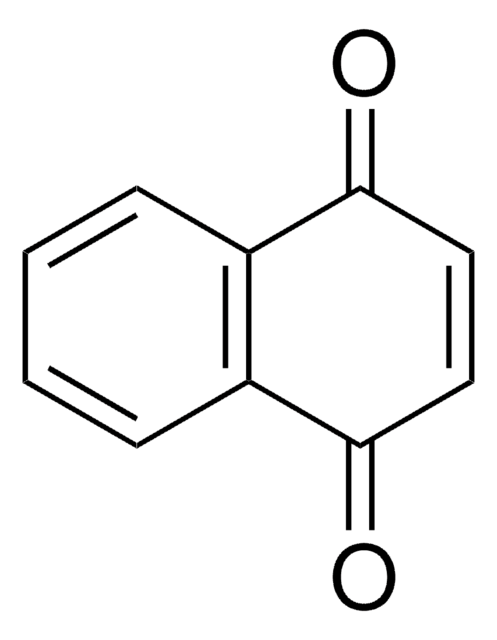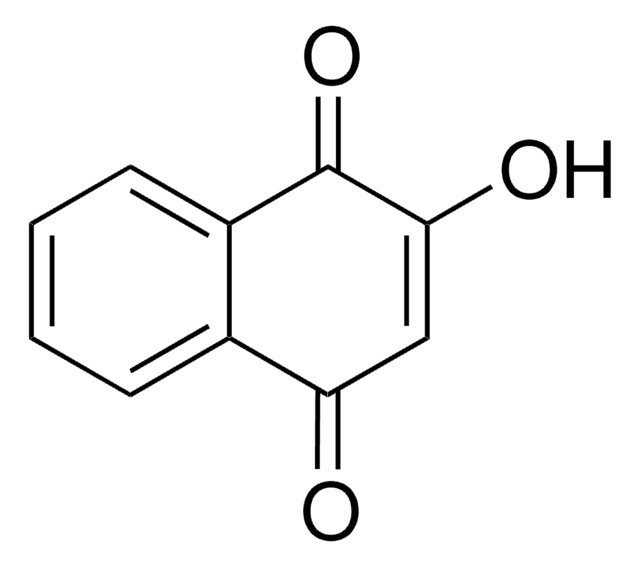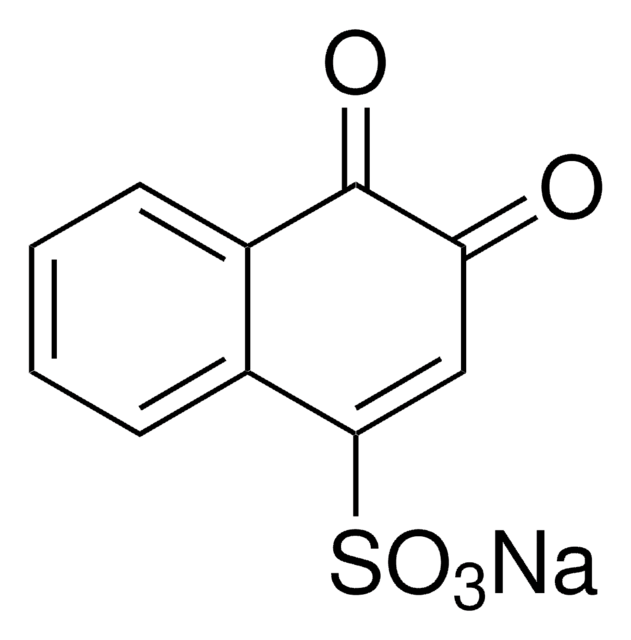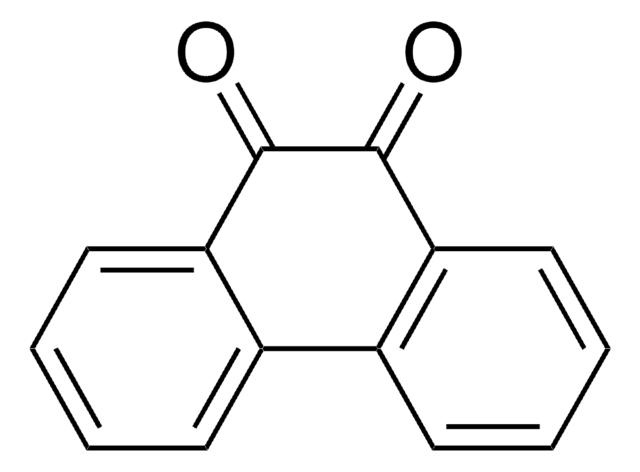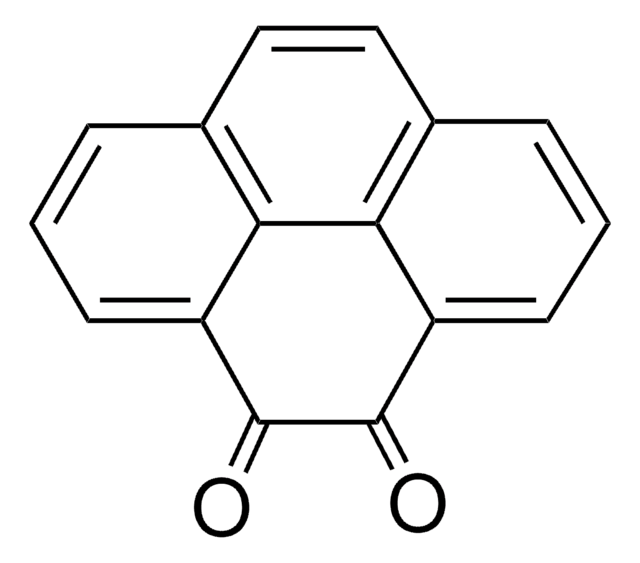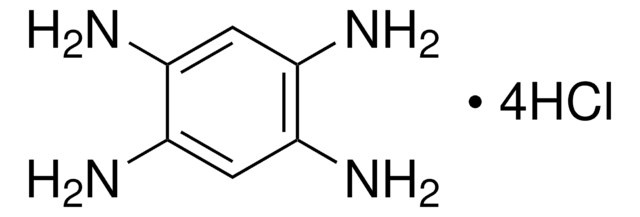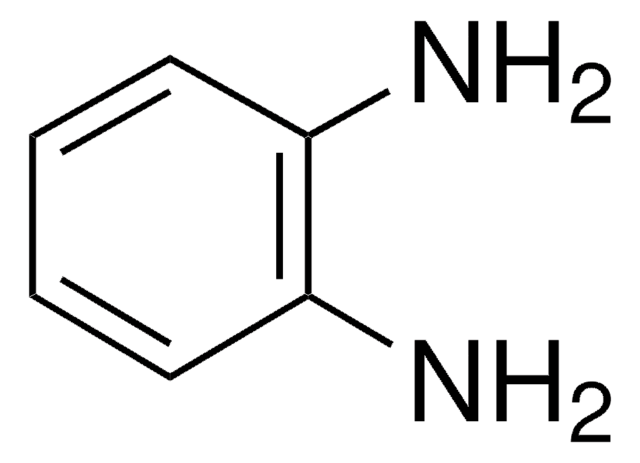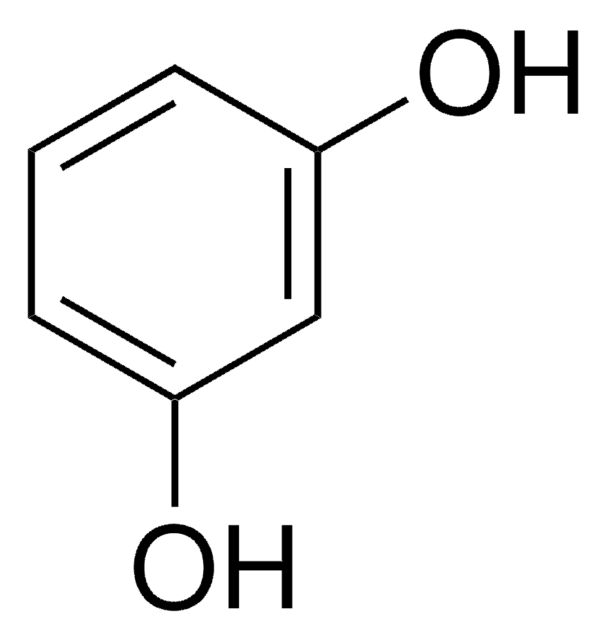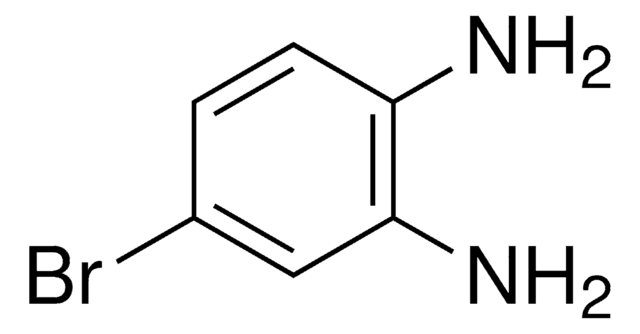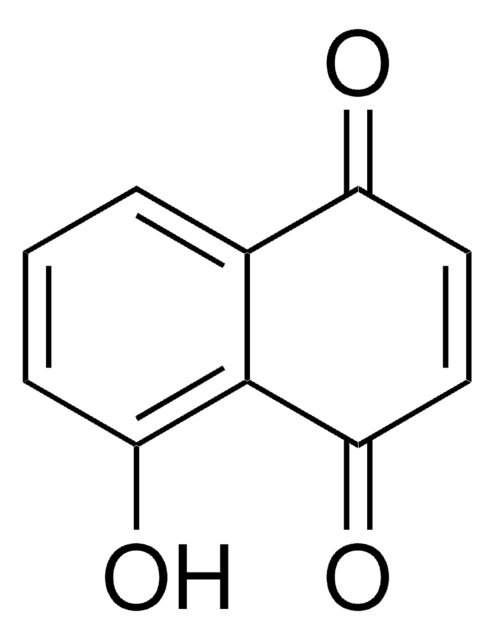346616
1,2-Naphthoquinone
97%
Synonym(s):
β-Naphthoquinone
Sign Into View Organizational & Contract Pricing
All Photos(1)
About This Item
Empirical Formula (Hill Notation):
C10H6O2
CAS Number:
Molecular Weight:
158.15
Beilstein:
606546
EC Number:
MDL number:
UNSPSC Code:
12352100
PubChem Substance ID:
form:
powder
Assay:
97%
Recommended Products
Assay
97%
form
powder
mp
139-142 °C (dec.) (lit.)
functional group
ketone
SMILES string
O=C1C=Cc2ccccc2C1=O
InChI
1S/C10H6O2/c11-9-6-5-7-3-1-2-4-8(7)10(9)12/h1-6H
InChI key
KETQAJRQOHHATG-UHFFFAOYSA-N
Gene Information
human ... PTPRC(5788)
Looking for similar products? Visit Product Comparison Guide
General description
1,2-Naphthoquinone is one of the major metabolite of naphthalene, which is responsible for the cytotoxicity and genotoxicity associated with it. 1,2-Naphthoquinone is an atmospheric contaminant. It causes the contraction of trachea smooth muscles in guinea pig through the activation of epidermal growth factor receptor. 1,2-Naphthoquinone has been reported as an environmental quinone in diesel exhaust particles (DEP) and atmospheric particulate matter.
Application
1,2-Naphthoquinone was employed as mediator during electrochemical mapping of redox activity in normal human breast (MCF-10A) cells by scanning electrochemical microscopy (SECM).
Signal Word
Warning
Hazard Statements
Precautionary Statements
Hazard Classifications
Acute Tox. 4 Oral - Eye Irrit. 2 - Skin Irrit. 2 - STOT SE 3
Target Organs
Respiratory system
Storage Class Code
11 - Combustible Solids
WGK
WGK 3
Flash Point(F)
Not applicable
Flash Point(C)
Not applicable
Personal Protective Equipment
dust mask type N95 (US), Eyeshields, Gloves
Choose from one of the most recent versions:
Already Own This Product?
Find documentation for the products that you have recently purchased in the Document Library.
Customers Also Viewed
B Liu et al.
Proceedings of the National Academy of Sciences of the United States of America, 97(18), 9855-9860 (2000-08-30)
Electrochemical methods have been widely used to monitor physiologically important molecules in biological systems. This report describes the first application of the scanning electrochemical microscope (SECM) to probe the redox activity of individual living cells. The possibilities of measuring the
Shota Kikuno et al.
Toxicology and applied pharmacology, 210(1-2), 47-54 (2005-07-26)
1,2-Naphthoquinone (1,2-NQ) has recently been identified as an environmental quinone in diesel exhaust particles (DEP) and atmospheric PM2.5. We have found that this quinone is capable of causing a concentration-dependent contraction of tracheal smooth muscle in guinea pigs with EC50
Soraia K P Costa et al.
Archives of toxicology, 84(2), 109-117 (2009-04-29)
The environmental chemical 1,2-naphthoquinone (1,2-NQ) is implicated in the exacerbation of airways diseases induced by exposure to diesel exhaust particles (DEP), which involves a neurogenic-mediated mechanism. Plasma extravasation in trachea, main bronchus and lung was measured as the local (125)I-bovine
Wan-Yun Cheng et al.
Environmental health perspectives, 120(2), 267-274 (2011-10-15)
Toxicological studies have correlated inflammatory effects of diesel exhaust particles (DEP) with its organic constituents, such as the organic electrophile 1,2-naphthoquinone (1,2-NQ). To elucidate the mechanisms involved in 1,2-NQ-induced inflammatory responses, we examined the role of oxidant stress in 1,2-NQ-induced
Takashi Miura et al.
Chemical research in toxicology, 24(11), 1836-1844 (2011-08-11)
Many cellular proteins with reactive thiols form covalent bonds with electrophiles, thereby modifying their structures and activities. Here, we describe the recovery of a glycolytic protein, glyceraldehyde-3-phosphate dehydrogenase (GAPDH), from such an electrophilic attack by 1,2-napthoquinone (1,2-NQ). GAPDH readily formed
Our team of scientists has experience in all areas of research including Life Science, Material Science, Chemical Synthesis, Chromatography, Analytical and many others.
Contact Technical Service